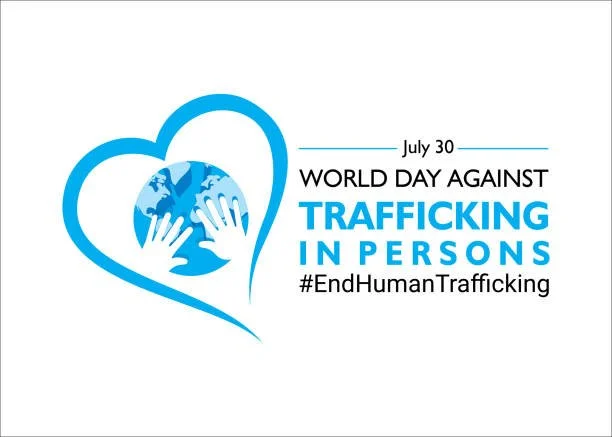Modern Human Trafficking Exploiting The Sudanese Community
Staying Vigilant Amid False Resettlement Promises
Nearly 3 million people have been displaced internally and across borders by the conflict in Sudan, in less than three months.
In addition to the more than 2.2 million internally displaced persons (IDPs), nearly 700,000 others have fled to neighbouring countries, according to the latest figures by the International Organization for Migration's (IOM) Displacement Tracking Matrix (DTM).
In the wake of the ongoing war in Sudan, many innocent lives have been uprooted and displaced, leaving families torn apart, and individuals seeking refuge from the chaos. While countries like Australia have opened their doors to provide a safe haven for those fleeing conflict and persecution, a darker side has emerged - modern human trafficking. Unscrupulous individuals and criminal networks prey on vulnerable Sudanese refugees, offering false promises of resettlement in Australia, only to exploit them for profit. In this blog, we shed light on this alarming issue and emphasise the importance of checking information on government websites to ensure a safe and legal process.
The War in Sudan: A Humanitarian Crisis
The war in Sudan has caused immense suffering for its people, with countless lives lost, homes destroyed, and communities torn apart. As a result, many Sudanese individuals have sought refuge abroad, hoping to find safety, stability, and a chance at a better life for their families. It is in this vulnerable state that human traffickers find their opportunity to deceive and exploit them.
The Promise of Resettlement in Australia: A Trap
With Australia's reputation as a compassionate country offering asylum to refugees, the promise of resettlement there becomes an attractive proposition for many Sudanese people fleeing conflict. Human traffickers capitalise on this hope, presenting false opportunities that appear genuine at first glance. These unscrupulous individuals may pose as immigration agents, job recruiters, or community leaders, using various means to convince their victims of the legitimacy of their claims.
Common Tactics Employed by Human Traffickers
1. Misinformation: Traffickers often spread misinformation about Australian immigration policies and procedures, confusing their victims and making them more susceptible to manipulation.
2. False Documentation: These criminals may forge documents to create a semblance of authenticity, leading the victims to believe that they are following the proper channels for resettlement.
3. Exploitative Fees: In their pursuit of a better life, many refugees are willing to pay exorbitant fees for assistance with the resettlement process. Traffickers exploit this desperation by demanding substantial sums of money, leading to further victimisation.
Staying Vigilant: Checking Government Websites
In the face of these fraudulent schemes, it is crucial for Sudanese refugees, and anyone seeking to resettle in Australia, to exercise caution and verify information from legitimate sources. Government websites, especially those related to immigration and resettlement, provide accurate and up-to-date information on the proper procedures for seeking asylum. Always cross-check any promises or claims made by individuals or agencies with the official government guidelines.
The Role of Non-Governmental Organisations (NGOs) and Support Groups
Non-governmental organisations and support groups play a vital role in assisting refugees and migrants. These organisations offer genuine support and guidance through the resettlement process. If approached by any individual or agency claiming to offer resettlement assistance, refugees should verify their credentials and reputation through reliable channels and seek advice from established NGOs working with refugees.
Creating Awareness: Education is Key
Raising awareness about the dangers of human trafficking and false promises of resettlement is paramount in combating this issue. Governments, NGOs, and the media must work together to disseminate accurate information about the legal pathways to seek asylum and resettlement. Additionally, campaigns can be launched within affected communities to alert individuals about the potential risks and to share stories of survivors who have fallen victim to human trafficking.
The war in Sudan has caused immense suffering, and its people are deserving of compassion and support. However, amidst the chaos, human traffickers prey on vulnerable refugees, offering false promises of resettlement in Australia. To combat this heart-wrenching exploitation, it is essential for individuals to verify information through government websites and seek assistance from reputable NGOs and support groups. By staying vigilant and informed, we can work together to protect the rights and dignity of those who have already endured so much.
